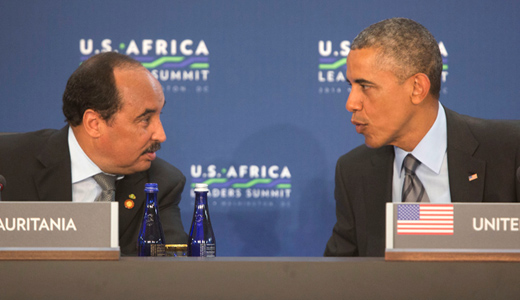
Africa was in the news this week. An ebola epidemic in West Africa has reached record proportions, there were more threats from the extremist Boko Haram group in Nigeria, and 50 African countries were represented in a massive get together with corporate chiefs and U.S. officials in Washington D.C.
Although we read that Africa is making great strides, most of its countries, particularly those South of the Sahara, are still at the bottom of any measures of human wellbeing. In per capita gross domestic product, infant and child mortality, etc., almost all the countries at the bottom of any list are African, with only a few exceptions such as war-torn Afghanistan.
Various analysts attribute Africa’s problems to “corruption,” which, by itself, doesn’t explain the continent’s problems. Nor does abuse of power evident in Africa contribute much to a full understanding of what is going on. What then are some of the root causes of Africa’s malaise?
At the Washington conference, the Obama administration was joined by U.S.-based corporate giants like Coca Cola, Walmart, General Electric, Yum Brands and others in promoting the idea that prosperity can come to Africa via massively greater direct foreign investment (DFI) by the U.S. corporate sector. Vice President Biden and former President Bill Clinton joined in boosting U.S. investment as the ticket for lifting Africa out of the doldrums.
Some of the African heads of state and other leaders at the conference, such as President Paul Kagame of Ruanda, strongly supported this line while promoting their own countries as ideal sites for U.S. corporate investment, with stability and good government as major selling points. Corporations stressed the need for African states to create positive conditions for international investment. Human rights received little attention and workers’ rights practically none.
A big concern of both the U.S. officials and the corporations present was China’s massive trade with and investment in Africa, which has overtaken that of the U.S. and the European Union. The United States has criticized Chinese investment in Africa on two grounds: That China invests without demanding political changes from the African countries, and that, as President Obama hinted, China takes more out of Africa than it puts in. Some of the corporate representatives at the Washington conference specifically said they were “not interested” in funding infrastructure, a major focus of Chinese investment.
What they are interested in is competing for the African markets and also having cheap and safe access to African mineral resources, the name of the game for western corporations since the original “Scramble for Africa” a century ago, which led to the original frenzy of looting African resources.
That China does not pursue “regime change” in the countries with which it trades is seen as positive by most African leaders. As for Chinese business taking out more than it puts in, one might ask whether WalMart and Coca Cola have now become charitable enterprises! There are also big worries in Africa about the increasing U.S. military presence, and the tendency of foreign corporations to take over vast amounts of farmland, harming food security and displacing farmers.
Yet there are also some problems and frictions relating to Chinese-African investments.
The upshot of the conference is that U.S. corporations promised $14 billion of new investments in Africa, while the U.S. government promised $7 billion more in development loans, with the World Bank anteing up more for a total of $33 billion in promises. U.S. government help will go to facilitate deals that open African doors to U.S. corporations.
There was a counter-conference, by organizations including Oxfam and American Friends Service Committee. There were also protests outside the conference venues. Some pointed out that it was hypocritical to deny participation to countries such as Zimbabwe, Eretria and Central African Republic because of disapproval of those governments’ methods of rule, while rolling out the red carpet for the likes of Swaziland’s King Mswati III, whose government has been suppressing labor, and Rwanda‘s President Paul Kagame whose government is accused of assassinating its opponents and destabilizing the neighboring Democratic Republic of Congo.
But there was little questioning of the model of African development promoted at the conference, namely direct foreign investment by Western monopoly corporations, tied to commodities exports that heavily emphasize extractive industries such as mining, oil, gas, etc.
African leftists point out that their continent needs infrastructure (roads, electrical generation), greatly increased investment in education and public health, and improved internal and regional markets in order to break away from the colonialist legacy of extractive activities producing, under the control of foreign monopolies, commodities for export. Only this way can needed diversification be achieved. WalMart and Coca Cola will not help Africa break away from the current model which has perpetuated poverty and states so weak that they can’t cope with things like the Ebola outbreak.
For now, the African nations, who have to trade somehow, have little choice but to play the Americans and Europeans and the Chinese off against each other to see who offers the best deals under the old model.
But one of the last things President Hugo Chavez of Venezuela did before he died was to suggest that the Bolivarian countries of Latin America start working with the African countries to find better alternatives.
Photo: President Obama talks with Mauritanian President Mohamed Ould Abdel Aziz at the US-Africa summit. Pablo Martinez Monsivais/AP












Comments